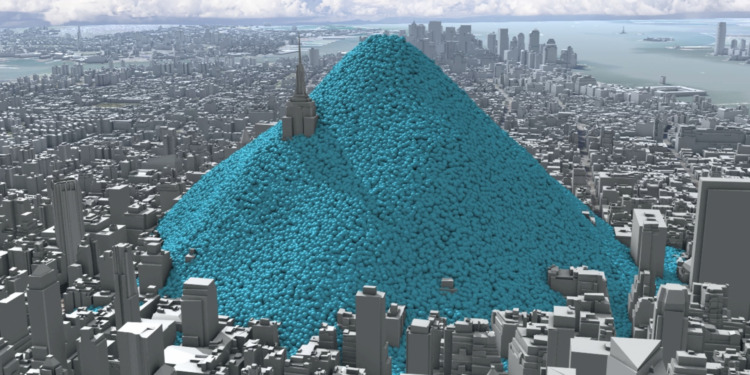On November 29, a day before the opening of the 28th United Nations Climate Change Conference, COP28, in Dubai, the United Nations (UN) and Microsoft unveiled a new partnership that has the potential to change the game for politicians and the fossil fuel industry.
The collaboration will enable the United Nations Framework Convention on Climate Change (UNFCCC), the UN entity tasked with supporting the global response to the threat of climate change, to “create a new AI-powered platform and global climate data hub to measure and analyze global progress in reducing emissions,” the UN and Microsoft write in a joint statemet.
“[Y]ou can’t fix what you can’t measure,”
— Microsoft President Brad Smith.
What’s wrong with the current process, though? As the UN and Microsoft explain, it often relies on manual work and is time-consuming. The new tools, according to the two, will “dramatically simplify” the process of validating and analyzing climate data submitted by the Paris Agreement Parties.
As part of the partnership, Microsoft will build a new platform that will “enable advanced analysis of global climate data through the creation of a new global climate data hub and an AI-powered data analytics platform.”
These tools will empower the UNFCCC and its member states to efficiently report and validate progress toward carbon reduction targets. The platform will cover diverse sources of carbon emissions, including transportation, agriculture, and industrial processes.
With the new tools, the UNFCCC and member states will be able to plan carbon reduction strategies through simulations, benchmarks, and data visualizations, which will save them time and money.
In the words of Microsoft President and Vice Chair Brad Smith, “these new AI and data tools will allow nations to measure emissions far better than they can today.”
“Simply put, you can’t fix what you can’t measure,” Smith said.
Related Articles: COP28 Must Be the COP of Climate Credibility | Pinpointing Carbon Emissions Like Never Before: World’s First CO2 Monitoring Satelite Is Now in Orbit | Pace of Decarbonization by Public Companies Set to Decelerate | AI Can Now Track Emissions Hotspots, Including Individual Plants, Mines, and Even Ships
Under the agreement, Microsoft will spend $3 million over two years to support the implementation of the Enhanced Transparency Framework and the Global Stocktake mechanisms established by the Paris Agreement.
“The Paris Agreement provides the framework for all the world’s nations to reduce greenhouse gas emissions in line with limiting global warming to 1.5 degrees. Climate change is a global emergency that goes beyond borders. It will require technology for adaptation and mitigation,” UNFCCC Executive Secretary Simon Stiell said, adding:
“Progress also requires collaboration from trusted partners to develop the tools that the framework requires to be delivered. We are happy to work with Microsoft in this effort.”
The timing of this collaboration is crucial, with world governments meeting at COP28 in Dubai, organized by the UNFCCC and the COP28 UAE Presidency, between November 30 and December 12.
In their press release, Microsoft and the UN remind us that they are co-hosting a series of climate action events in the UNFCCC Pavilion in the Blue Zone at COP28. The events aim to catalyze and expedite climate action, bringing together stakeholders from diverse backgrounds to address the challenges posed by climate change.
Editor’s Note: The opinions expressed here by the authors are their own, not those of Impakter.com — In the Featured Photo: New York City’s daily carbon dioxide emissions as one-tonne spheres. Featured Photo Credit: Carbon Visuals.










